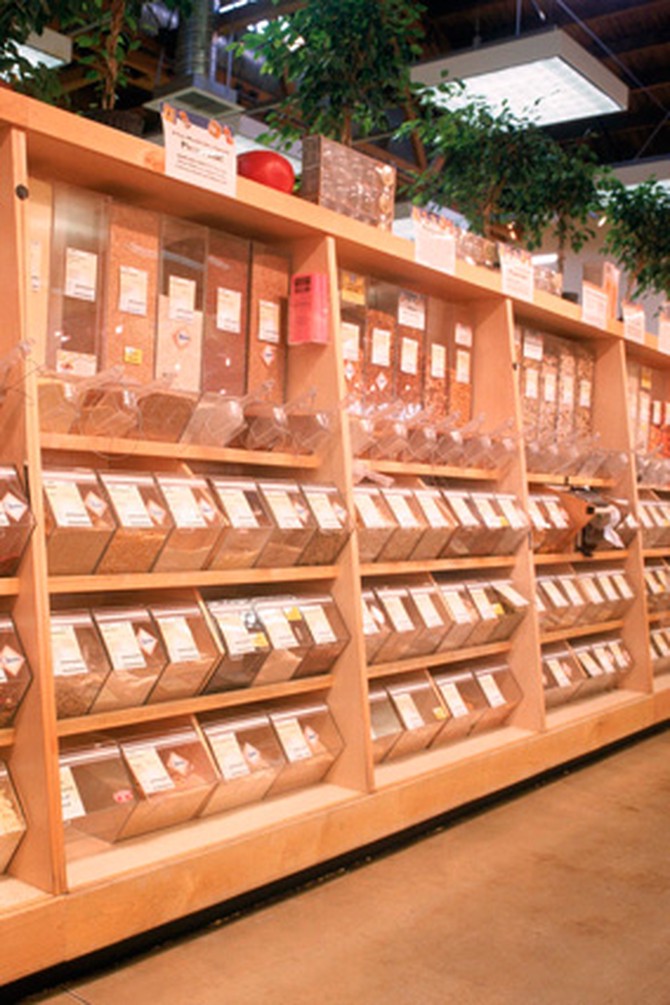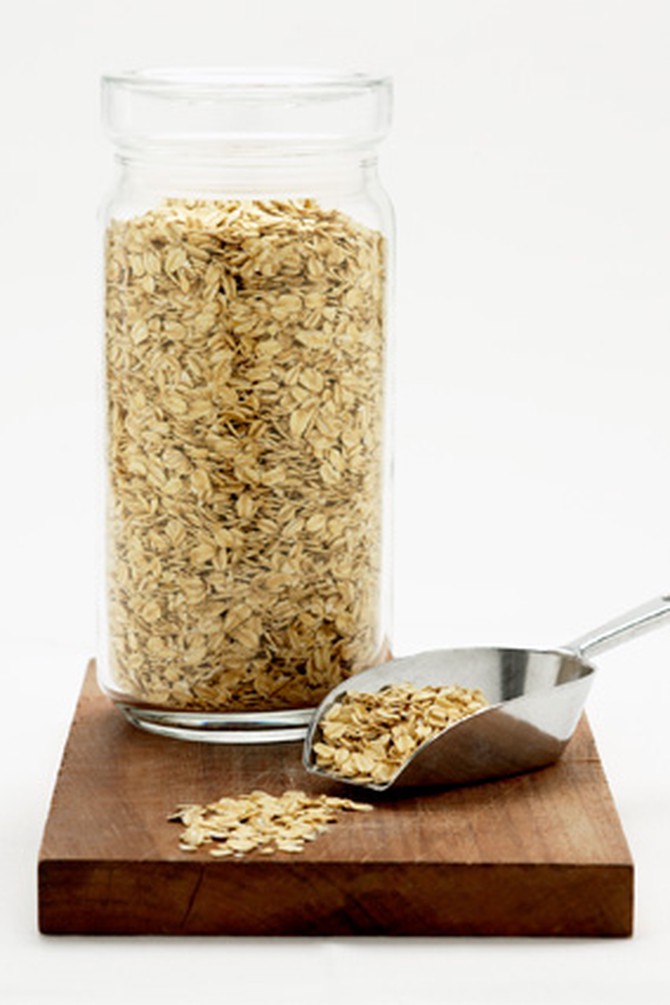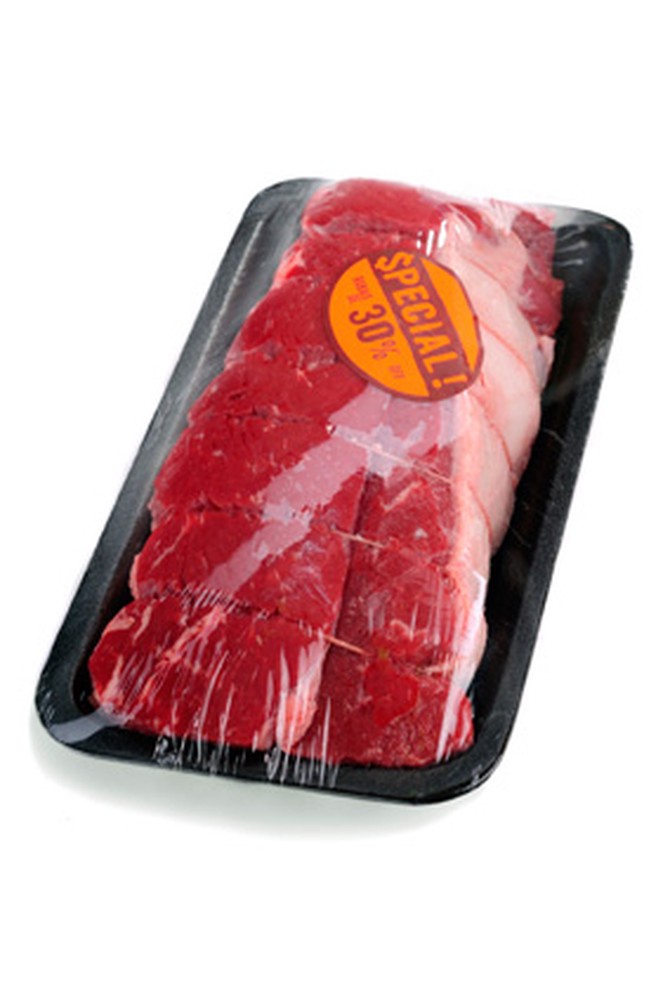You Bought in Bulk...Now What?
Stocking up on large quantities of food is a smart way to save money. Here's how to make sure none of it goes to waste.
By Lynn Andriani

Photo: Thinkstock
You've come home from the store with 5 pounds of rice and 15 pounds of chicken (and saved yourself 30 to 60 percent compared with what you'd spend on packaged food). If you aren't planning to make enough paella to feed an army tonight, you'll need to figure out how you're going to store it all. First, you'll need clean, dry, airtight containers. Next, get out the blue painter's tape (it sticks but is removable) and a Sharpie, because you'll want to label every container with a description of what's inside and the date you bought it. Then, follow these guidelines for where and how long to keep the food. And pat yourself on the back for saving the environment too—buying bulk foods translates into less stress on the environment through less package manufacturing, reduced transportation emissions and less garbage in landfills.

Photo: Thinkstock
Dried Beans
These are some of the healthiest foods in the bulk aisle (they're number four on Dr. Perricone's list of the top 10 superfoods), and dried beans tend to be less salty than canned beans and hold up better when you cook them. If you place them in airtight jars and leave them in your pantry, they'll keep for a year. (Don't freeze or refrigerate uncooked dried beans, though, because they can absorb moisture and lose flavor.) Dried beans need to soak overnight in water before you can cook them.

Photo: Thinkstock
Coffee Beans
If you're going to grind coffee beans and use the coffee in a week or two, store it in an opaque, airtight container at room temperature (ideally 70 degrees). For longer-term storage (i.e., a month or two), the freezer is okay: Put the beans in a zip-top bag, suck out the air with a straw and seal; then place that bag in a paper grocery bag to keep the beans away from light—even minimal amounts can make the flavor deteriorate.

Photo: Thinkstock
Flour
Kept at room temperature in an airtight container or in the original packaging placed inside a zip-top bag, most flours will last 6 to 12 months. The exception is whole grain flours: The bran and germ portions of the grain contain oils that cause these flours to go rancid more quickly. Keep whole wheat flour in your fridge or freezer, sealed the same as you would for the pantry, and it will last up to a year. Other whole grain flours such as buckwheat, oat and rice flours will last only two to three months in the freezer. Don't let them go bad: Try them in one of these delicious recipes from Good to the Grain author Kim Boyce.

Photo: Thinkstock
Grains
Barley, millet, oats, quinoa and rice are classic bulk food items, and these days, many markets sell interesting varieties such as ruby red jasmine rice and black beluga lentils. Round airtight containers are best, since square containers can be packed next to one another and air won't circulate (which can raise the temperature inside the jars). Most will keep for years. Brown rice, though, has a much shorter shelf life, for the same reason whole grain flours do. You can store it for about six months in your refrigerator or freezer. Rancid rice won't necessarily make you sick, but it won't be as nutritious or flavorful. These brown rice and lentil burgers are just one delicious way to use brown rice.

Photo: Thinkstock
Meat
If you see meat on sale, you can stock up, with some caveats. Jodi Moore, who runs the site Food Storage Made Easy with her sister-in-law Julie Weiss, recently bought 30 pounds of ground beef when she saw it for $2 a pound; she preserved it using a specialized type of pressure cooker called a pressure canner. Another option for storing meat is freezing it, but don't just wrap it a few times in plastic—that won't prevent freezer burn. You'll need to vacuum seal it. Meat that has been vacuum sealed will keep two to three years, ground meat up to a year, and fish up to two years.

Photo: Thinkstock
Cheese
Yes, you can coat cheese in wax and then store it in your basement for a very long time. But if you don't have the space for a 10-pound wheel of cheddar, just watch for the more manageable 8-ounce blocks to go on sale. Buy a bunch and shred them; then store the grated cheese in freezer bags and freeze for up to six months (a frozen block of cheese will crumble when thawed). Or buy pre-shredded cheese in bulk and freeze it.

Photo: Thinkstock
Yogurt
Yogurt you freeze yourself doesn't taste like the frozen yogurt you're used to; its texture can be lumpy or separated. Under proper storage temperatures (36 to 40 degrees), yogurt can last up to seven days past its use-by date. Still, you can freeze it using Moore's method: If she comes across a surplus, she puts it in ice cube trays and uses the frozen cubes in smoothies.
Keep Reading
Solutions for the budget-conscious family
Keep Reading
Solutions for the budget-conscious family
Published 10/24/2011

